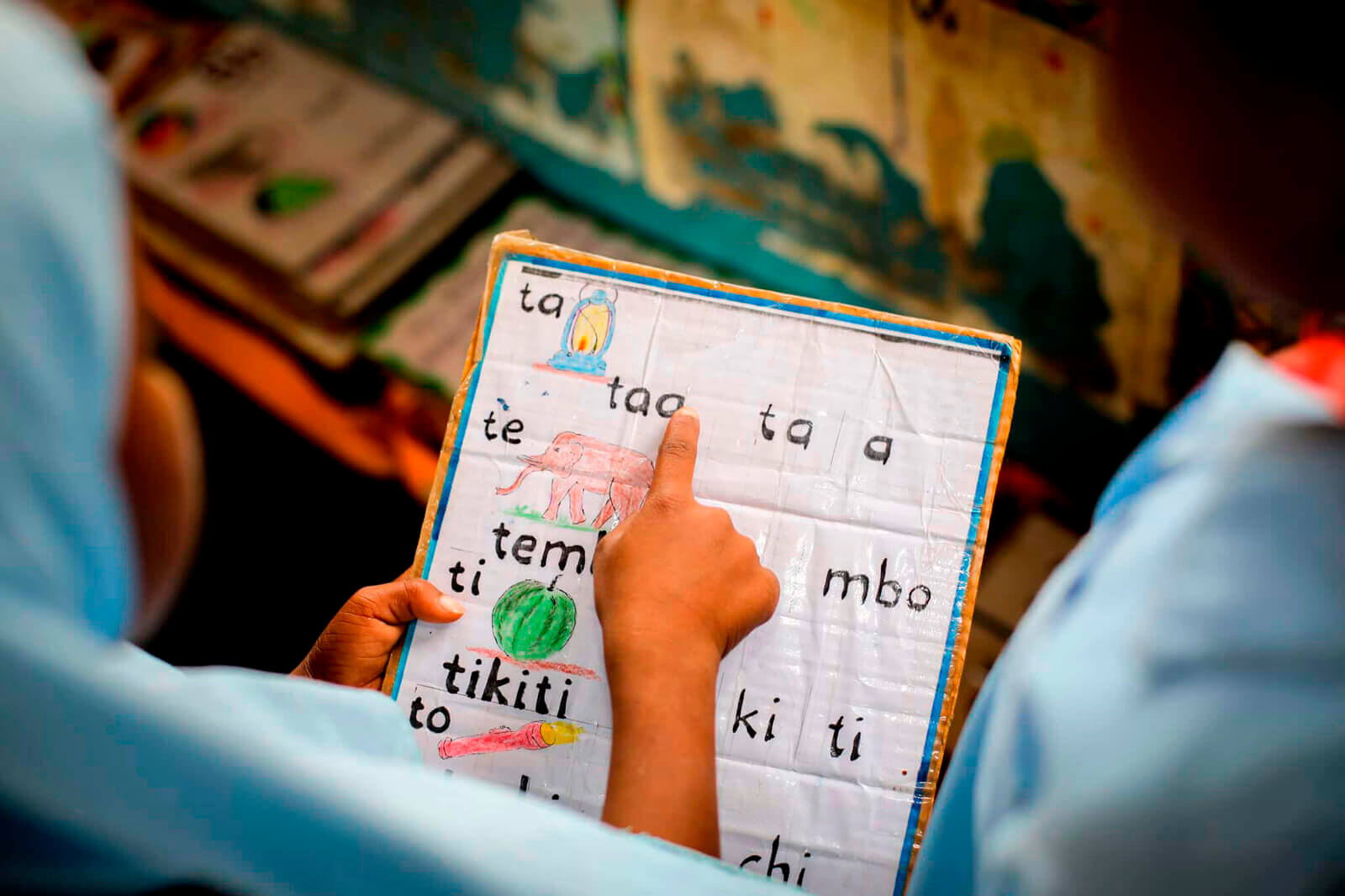Schools in Uganda were affected by one of the longest closures during the pandemic lockdowns, which meant that many vulnerable and marginalised students suffered huge setbacks to their learning. To close this learning gap, Schools2030 teams and teachers in Uganda have been testing creative and playful classroom practices to improve foundational literacy. Watch the three short videos below to see how these child-centred innovations are helping learning to come alive, across preschool, primary school and even secondary school cohorts.
The Fishing Game: Biina Islamic Nursery School
Teachers at this ECD centre in Uganda have created a playful learning game to help young children understand and pronounce new letters and words. The children ‘catch’ letters and syllables in a pond and use what they catch to form short, simple words that they have to pronounce. This playful way of learning is proving to be much more effective because the children are enjoying the experience and are meaningfully engaged.
Sound and Syllable Card game: Kiswa Primary School
Teacher, Nansubuga Justine, and her colleagues at Kiswa Primary School, Kampala, worked alongside students to co-design a card game that helps students in the class learn how to pronounce, spell and construct new words and sentences.
The Writing Treasure Trove: MacKay Memorial College-Nateete
To support secondary school students to become better descriptive writers, Nakyanzi Jalia and her colleagues at MacKay Memorial College-Nateete, in Uganda, created this writing adventure game, that takes students on a collaborative writing and learning journey. The imagination-fuelled classes take place over several weeks and includes aspects like the ‘storyboard corner’ (where extracts from novels are placed on walls to suit what the children are learning about, eg character development); ‘sojourn the world in one moment’ (where the children place the characters within an imagined world); ‘wave the magic wand’ (putting ideas to paper) and ‘I can better it!’ (where the children share their written work with others and the class work together to improve what has been written).
These videos were created by the Aga Khan Foundation Uganda as part of the Schools2030 programme.
